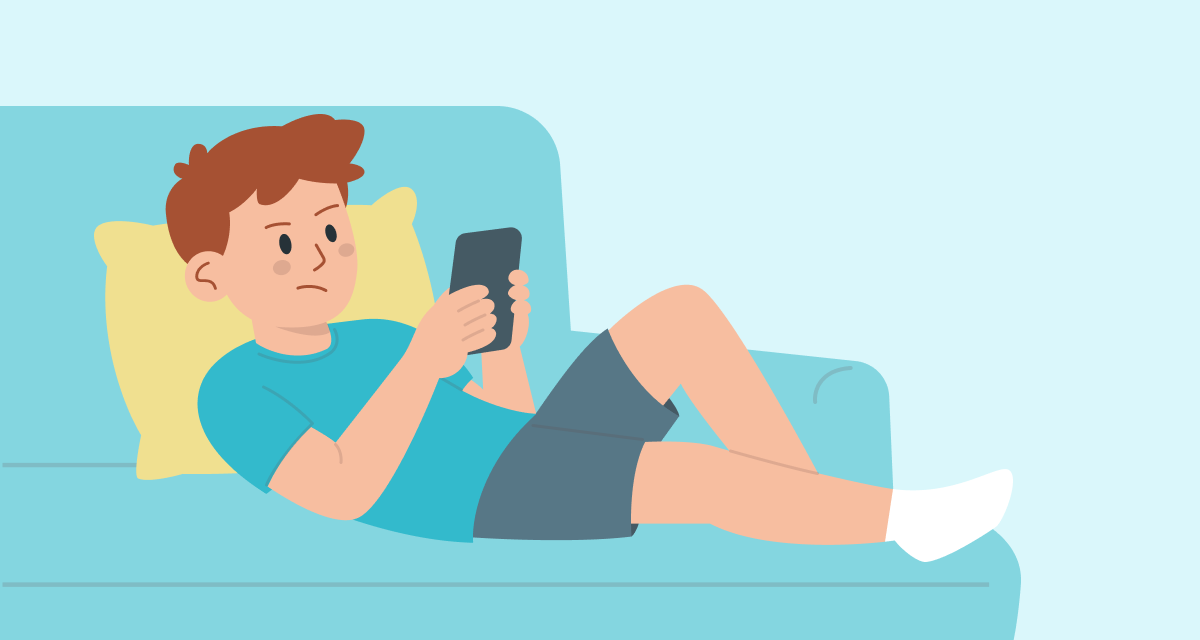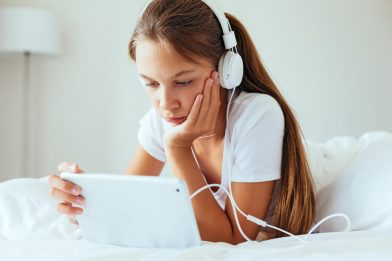When Screens Get in the Way of Teen Rest

Teens are spending more and more time on their devices, especially in the evenings. Social media, videos, games, and texting don’t just grab their attention; they also affect how well they feel and recover.
If your child struggles to put down their phone at night and can’t wake up in the morning, screens might be interfering with their ability to rest and recharge.
How Devices Affect Recovery
Between the ages of 12 and 17, teens go through rapid growth, hormonal shifts, and emotional ups and downs. To handle all that, they need solid resources: good sleep, breaks, physical activity, and time to relax and reset.
Screens can get in the way of that recovery, especially when used without limits. Here’s how:
- Blue light from screens suppresses melatonin production—the hormone that signals the body it’s time to sleep. This makes it harder for the brain to wind down.
- Teens already have a natural shift in their internal clock. It becomes harder to fall asleep early. Screen time in the evening only deepens that shift and makes falling asleep even harder.
- Social media, games, and messages are emotionally stimulating. Instead of slowing down, the brain stays active and alert.
As a result, teens fall asleep later, get less rest, and often wake up tired and irritable. Studies show that evening screen time is linked to poor sleep, increased anxiety, and daytime drowsiness.
Why It’s Not Easy to “Just Put the Phone Away”
If your teen struggles to disconnect at night, it’s not about laziness or defiance.
Evening is often the only time teens feel like they have personal space. It’s when they can talk to friends, watch something they enjoy, and have a moment to themselves.
In adolescence, peer acceptance and connection are hugely important. Being online in the evening can feel essential.
Plus, apps are designed to keep users engaged—endless feeds, suggested content, notifications—everything pulls them into more scrolling.
When Tech Helps Recovery, Not Hurts It
Tech itself isn’t the enemy. What matters is how and why it’s used. With a mindful approach, screens can even support relaxation:
- Audiobooks and podcasts help shift attention gently and prepare the brain for sleep.
- Breathing apps, meditation guides, and mood journals can aid recovery and emotional regulation.
- Night mode or blue light filters reduce the negative effects of screen exposure in the evening.
The key is finding balance and making sure screen time isn’t the only way a teen spends their free time.
How to Support Your Teen Without Battling the Phone
Teens don’t always connect how they feel with how they spend their time. They might not recognize signs of exhaustion or see screens as part of the problem. And the more pressure they feel, the more they may push back.
- Instead of lectures or data dumps, offer quiet support and observation. You don’t need to prove them wrong—just be present.
- Talk about how they feel in the mornings or after heavy screen time vs. more restful days. Reflect together.
- Gently suggest alternatives: a short walk, a podcast, music, a quiet chat, reading—anything that helps wind down.
Use technology as a tool for awareness. Sleep trackers, heart rate monitors, stress level checkers, or screen time reports can help teens see the connection between habits and well-being for themselves.
⠀
Screens are part of teen life, and they’re not going anywhere. But how teens use them can either drain or restore them. Our role isn’t just to set limits—it’s to guide them toward self-care, including the kind of rest that helps them grow.
References:
- Digital detox as a means to enhance eudaimonic well-being, Frontiers in Human Dynamics, 2025
- Sleep in the Digital Age: Exploring the Effects of Media Habits on Sleep Quality in a Semi-Urban Context, Contemporary Social Science, 2024
- The Influence of Smartphones on Adolescent Sleep: A Systematic Literature Review, International Journal of Environmental Research and Public Health, 2023
- Screen time and digital technology use: how it affects child and teenage sleep, Raising Children Network (Australia), 2023
Проверьте электронный ящик



















